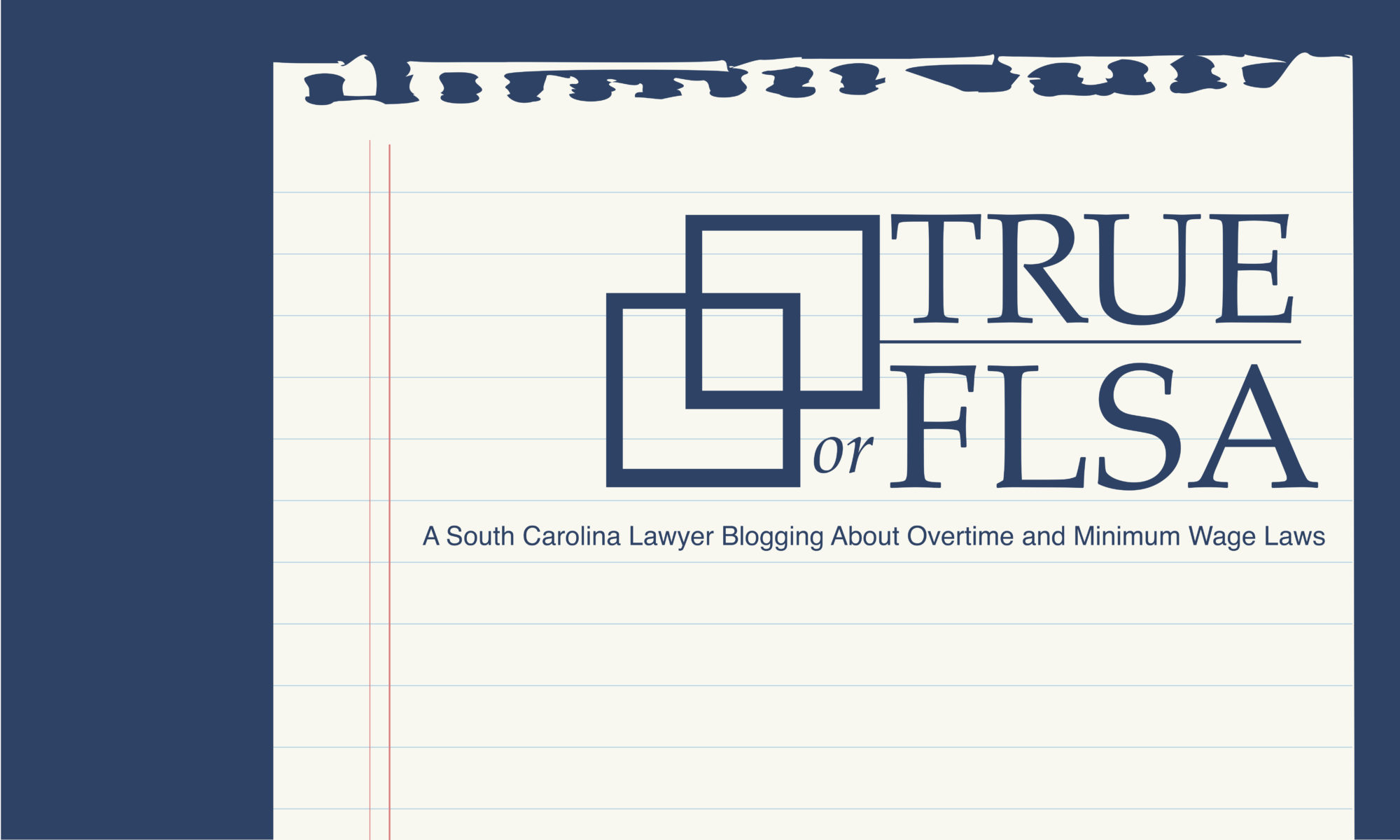Senator Mark Rubio recently introduced federal legislation that would modify the FLSA and limit the enforceability of non-compete agreements across the nation, including South Carolina. (A non-compete agreement is a contract signed by an employee that prevents that employee from going to work for a competitor for a certain period of time after leaving his current employer. These types of agreements are no longer limited to higher wage earners; many minimum wage earners or other lower paid employees are being forced to sign them as well. ) The proposed law would modify the existing Fair Labor Standards Act in several interesting ways.
First, the law would prevent companies from making non-exempt employees sign non-compete agreements. In essence, if an employee does not qualify for one of the exemptions under the FLSA (i.e., if the employee is classified as “non-exempt” and is currently getting paid overtime), then the employee cannot be forced to sign a non-compete agreement. Nor would the employer be able to enforce a non-compete agreement against a non-exempt employee or attempt to enforce the non-exempt agreement at all, rendering those employees’ existing non-compete agreements void.
Second, the U.S. Department of Labor would be responsible for enforcing the new law. (The DOL is already responsible for enforcing the FLSA overtime and minimum wage requirements.) So an employee could report a business that violates the law to the DOL, and the DOL could investigate and potentially bring a lawsuit against the company. Further, the employee could bring his or her own lawsuit against the company trying to enforce the non-compete illegally, and the employee could seek damages for the violation.
Personally, I think the law is great first step in regulating the use of non-compete agreements–which companies often use to bully employees and suppress easy movement from one job to another higher paying job–especially for lower wage earners. Very often companies do this type of bullying in the name of “protecting trade secrets,” which is frankly ludicrous for most of the lower wage earners wage earners who would be most benefited by this new law. Jimmy John’s sandwich makers are not learning corporate trade secrets, and neither are many of the employees whose non-compete agreements I review. The existing FLSA exemptions also provide a ready-made categorization for who the law applies to and who it doesn’t. Many states (not South Carolina, unfortunately) have already taken steps to restrict or ban the use of non-competes, so perhaps Sen. Rubio’s legislation will continue that trend.

